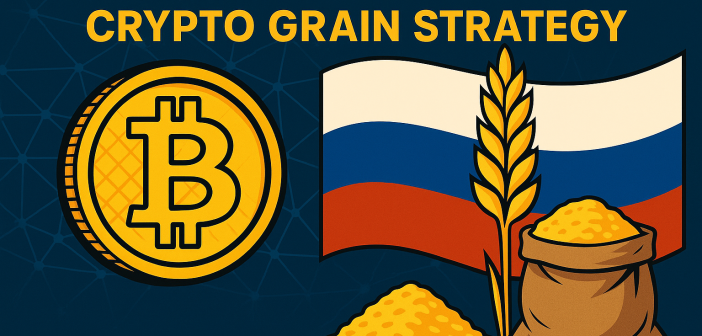Rosselkhozbank crypto grain settlement plans are under active consideration as the Russian agricultural bank looks for alternatives to traditional payment systems. The bank is evaluating cryptocurrency tools as a potential solution for settling cross-border grain exports, which currently exceed 49.5 million tons per year.
The announcement was made at the Russian Grain Forum in Sochi, where over 1,000 participants gathered to explore the future of agri-finance.
Irina Zhachkina, First Deputy General Director of Rosselkhozbank, stated:
“We believe cryptocurrencies could serve as a convenient alternative tool. We are working with the Bank of Russia and other stakeholders to assess the use of crypto for grain settlements.”
Crypto for Commodities: The Rosselkhozbank Crypto Grain Case
Since 2022, Rosselkhozbank has been under EU and US sanctions, including exclusion from SWIFT and asset freezes in Europe. This has made Rosselkhozbank crypto grain strategies more attractive, particularly as over 79 Russian grain transport vessels face access restrictions in European ports.
Crypto may become a workaround for these grain-related payment barriers, using stablecoins or blockchain infrastructure instead of legacy systems.
Russia’s Grain Sector May Go Crypto
International media have long speculated about Russian companies using stablecoins for international trade. Applying the same logic to the Rosselkhozbank crypto grain pilot would mark a new use case for blockchain in agriculture.
If implemented, crypto-powered settlements could streamline payment flows for exporters facing blocked financial channels. Rosselkhozbank’s crypto grain model could set the stage for similar projects across other resource-heavy industries.
Global Implications of Rosselkhozbank’s Crypto Grain Move
The Rosselkhozbank crypto grain initiative may reshape:
-
Payment corridors for sanctioned markets
-
Blockchain adoption in commodity trade
-
Institutional support for stablecoin infrastructure
Although the model is still under development, it demonstrates how blockchain finance may offer resilience for trade amid growing geopolitical tension.




